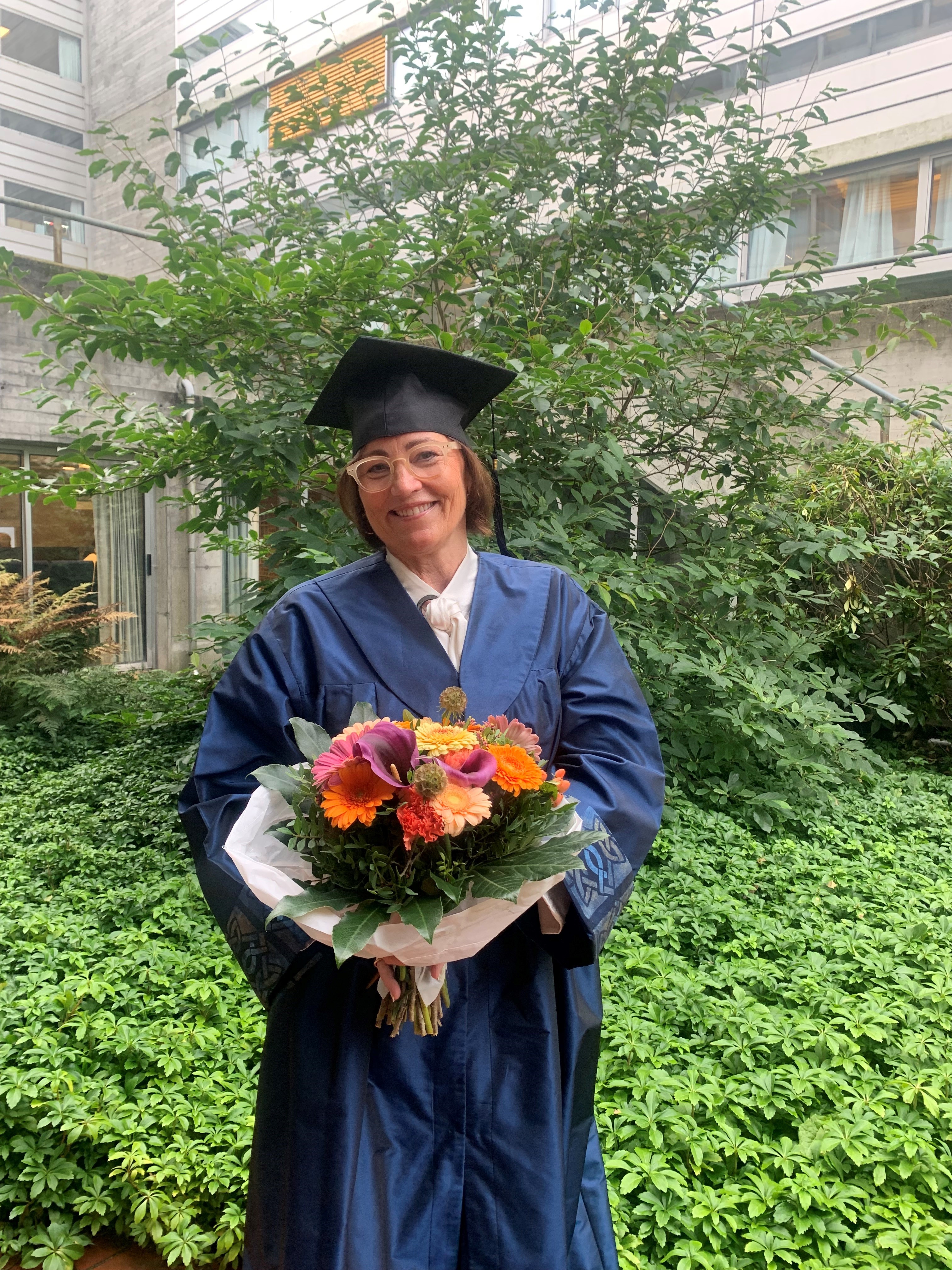Thesis: Interprofessional Teamwork in Hospital Units: A human factors approach to patient safety.

Oddveig Reiersdal Aaberg has investigated interprofessional teamwork and patient safety culture in hospital wards. She defended her doctorate degree in health and medicine at the University of Stavanger on 26 August 2022.
The research in the thesis was carried out at four hospitals in Norway. A study aimed to translate “The Collaboration and Satisfaction About Care Decisions in Team” questionnaire (CSACD-T) into Norwegian and test it for psychometric properties. The further aim was to describe and compare healthcare professional's collaboration and satisfaction about team decision-making (TDM) across hospital units. The results showed that collaboration and satisfaction with decisions in teams varied between different departments and the highest scores were among healthcare professional's on the wards and the lowest scores in the emergency department.
The second study (paper 2) aimed to explore the impact of an interprofessional teamwork and patient safety intervention in a surgical ward. The following research questions were formulated:
- Are there differences between the intervention group and the control group with regard to healthcare professional's perceptions of patient safety culture, perceptions of teamwork and attitudes toward teamwork from baseline to 12 months post-team training?
- Are there changes within the intervention group, and within the control group with regard to healthcare professional's perceptions of patient safety culture, perceptions of teamwork, and attitudes toward teamwork from baseline to 12 months post-team training?
The implementation of TeamSTEPPS included all healthcare professionals (doctors and nursing staff) in the department being trained in TeamSTEPPS using courses and simulation training, as well as a 12-month introduction of 10 different communication and teamwork tools. The effect of the program was measured using a questionnaire about the health professional's attitudes to teamwork, as well as the healthcare professional's 's perception of teamwork and the patient safety culture in the surgical ward. The results of the study showed improvements in the perception of teamwork in the department after 12 months with TeamSTEPPS. Improvements were also found in selected areas of the patient safety culture.
The aim of the study in Paper 3 was to evaluate an interprofessional TeamSTEPPS intervention in a surgical ward, with regard to patient safety culture, healthcare professional's perceptions of teamwork, and healthcare professional`s attitude towards teamwork, and to compare the results with a control ward. As also reported in paper 2, the results showed improvements in the perception of teamwork in the department after 12 months with TeamSTEPPS. Improvements were also found in selected areas of the patient safety culture, the latter also when compared to a control ward.
This is the first time the well known TeamSTEPPS program has been implemented and evaluated in Norway, and one of the first TeamSTEPPS studies in Europe. The results from the research can be used by other healthcare units and hospitals that want to introduce TeamSTEPPS to improve teamwork and the patient safety culture - now also in Norway. Nowadays healthcare professionals work in teams around the patient and all the different professions are dependent on each other. Good teamwork with safe communication is important to patient safety. TeamSTEPPS is a program that can contribute to improving patient safety by improving healthcare professional's competence in teamwork and "non-technical skills".
Oddveig Reiersdal Aaberg is a trained intensive care nurse. She has been employed in a research position at NTNU in Gjøvik, and has followed the doctoral program at the University of Stavanger. She is now employed at the University of Agder, Kristiansand.
Main supervisor:
Professor Marie Louise Hall-Lord, NTNU
Co-supervisors:
Associate Professor Randi Ballangrud, NTNU
Professor Sissel Iren Eikeland Husebø, University of Stavanger
